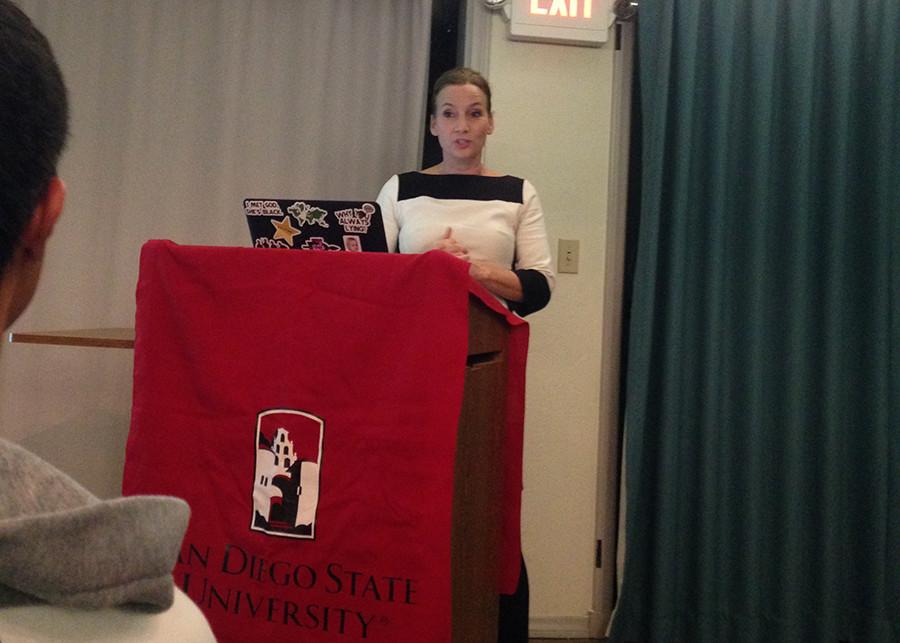Scholars Without Borders and the International Security and Conflict Resolution Student Society held a panel discussion about the global refugee crisis Thursday.
The panel featured Kathi Anderson, executive director of the Survivors of Torture International Organization, and Peggy Fleming, president of California’s German American Chamber of Commerce.
Planning for the crisis panel began in August, Scholars Without Borders President Jessica Williams said. The event organizers briefly considered canceling the event in light of the Paris attacks on Nov. 13, as well as other recent terrorist attacks in Lebanon, Kenya, Nigeria and Russia.
“But I said no, this needs to happen, we need to talk about it,” Williams said. “I think that’s what you need to do in the wake of a tragedy like this. … You need to talk about it to get through it.”
Hundreds of thousands of refugees fleeing war and persecution are expected to have arrived in Europe by the end of 2015. The majority of refugees are Syrians fleeing civil war.
“Sometimes people think because we’re so far away from this issue, geographically of course, that it doesn’t matter, but I think it really does impact America in a lot of ways,” Williams said. “I think it’s a really important thing to talk about, to continue this conversation that I know has been going on in Europe for a long time now.”
Having events like the European refugee crisis panel is crucial, Williams said.
“Universities are a place of such free thought with people who really want to solve issues, so this is a good way to reach a lot of young minds that are very politically oriented and can do a lot of change in the world,” she said.
Scholars Without Borders Vice President and political science junior Taylor Trummel said the event was created to create more awareness about the issue.
“Especially since (Europe) is such a popular place to study abroad, (and) being an organization that works to encourage students to study abroad and become a more engaged global citizen,” she said.
The guest speakers were able to add insight and context to the refugee crisis in Europe.
Fleming spoke about the dangerous journey refugees take to get to safer countries, such as Sweden, London and Germany. Germany has agreed to take as many as 800,000 refugees, the highest amount of refugees out of all European countries.
She also explained that because of the sheer numbers of refugees in Germany, only about 10 percent of the refugees currently in Germany were registered.
“They cannot be registered because the German government has run out of resources to register this large amount of applications,” she said at the event.
“It is important to understand when we later talk about the political discussion, especially after what happened on Friday, we don’t know who 90 percent of these people are.”
Anderson explained to the audience the extensive two-year process it takes refugees to apply to come to the U.S.
Earlier that day the House of Representatives voted on a bill that would create tougher refugee screening, despite President Obama’s promise to veto the bill.
“Politicians are making decisions based on fear as a result of the tragedy, as opposed to based on facts, based on what I think constituents really want,” Anderson said.












